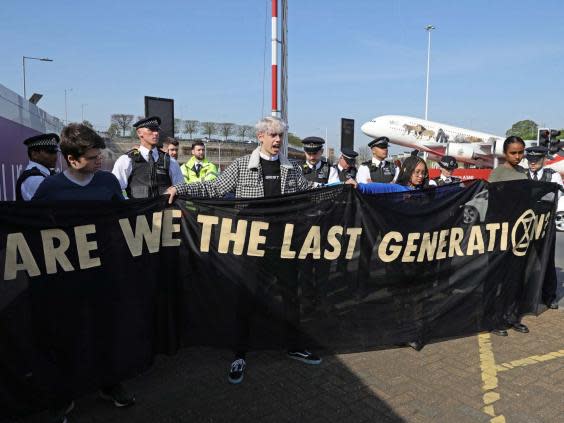The TV shows to watch this week: From Poldark to the moon landings
Obviously the television highlight of the week is the return of Poldark. For some of us, the good news is that Sunday night television will, after this “final” eight-week run, be liberated from blokes in tricorne hats and women in bodices. Possibly, that is, for as long as it takes for the BBC to knock up yet another Jane Austen adaption.
So, everyone is having to adapt to the death of Elizabeth Warleggan, with her widower, George (Jack Farthing) transmuting from panto villain into painful mental collapse. Ross (Aidan Turner, with the finest torso this side of Love Island) and wife Demelza (Eleanor Tomlinson) finds their domestic harmony disturbed once more when Ross receives an urgent call to settle some trouble up in London. Writing by Debbie Horsfield, based on and inspired by the originals by Winston Graham, written in the 1940s and 1950s. It’s remarkable how constant the middle-brow appetites of middle England can be.
The astonishing achievement of landing three men on the moon a half century ago is celebrated by a run of documentaries and commemorations. Back in 1969 colour television was in its infancy, the internet hadn’t been invented, and it was a mere quarter of a century since the very first rockets had been developed by Nazi engineers at the end of the Second World War, one of Hitler’s “miracle weapons” that arrived just too late to make much difference. The Russians were first into space, about a decade before, and President Kennedy – then as now the Americans were in constant uneasy rivalry with the Russians – pledged to get an astronaut on the moon by the end of the 1960s.
After an eight-day journey the three famous astronauts – Buzz Aldrin, Neil Armstrong and Michael Collins – travelled on Apollo 11 and did just that, their soundbites, sometimes misquoted, marking the dawn of the space age. The Day We Walked on the Moon tries to recapture some the wonderment of those moments, with reminiscences by the surviving astronauts and ground crew, with the charming Brian Cox adding some essential explanation.

That historic field trip to the moon also marked the first time any human had actually viewed Earth from the moon, of course, wondering at its beauty from the vantage point of our closest neighbour. The dawn of the space age also marked the dawn of modern environmentalism, and it was a moment that helped us realise what an unusual and remarkable and fragile thing life on Earth is. It didn’t, however, stop us from carrying on trashing the place, as we still are. BBC’s Extinction Rebellion: Last Chance to Save the World? is a portrait of some of the people who believe that it is almost too late to save our lovely little habitat, and the human race from extinction, and are, as we see, very determined to do something about it right here and right now.
It’s the first film to gain proper access inside the Extinction Rebellion movement. Filmmaker Ben Zand spent some four months following the activists around, as they planned and then executed their project to bring parts of central London to a halt for 10 days. They succeeded, in the sense that they stopped the traffic, caused mayhem and won huge publicity; but they may not have won the battle for public opinion, which is the first one they’ll have to win to achieve their ultimate aims. Still, Theresa May has given the country a 2050 deadline to decarbonise, at a cost of £1 trillion. Easier said than done, then.

Sometimes it feels as if the entire world is connected via social media, which I suppose it pretty much is, but despite how many folk tweet and update and instagram and whatsapp and linkedin, and are addicted to doing so, they seem to simultaneously hate the very outfits that have built such an unprecedented human communities, even though they’re only virtual. Inside the Social Network: Facebook’s Difficult Year relates the story of how this global giant with billions of users had to rescue itself and its reputation after the Cambridge Analytica scandal. For those of us wary of social media, and the web generally if truth be told, the safest thing is to assume that anything and everything you put out there digitally, from your mugshot to your mortgage details, is capable of being hacked, stolen, bought and sold by people with sometimes honourable and sometimes nefarious intent. I’m more amazed that social media users don’t seem to have enough common sense to have seen it coming. Not much of a scandal, in other words, though that’s a minority view.
If you like your sport you probably don’t need me to remind you about the treat that is offered over the coming days, but for the sake of completeness I may as well mention a few highlights – Wimbledon finals on the BBC at the weekend; Sunday’s Cricket World Cup final sees host nation England face New Zealand on Sky; the British Grand Prix rolls into Silverstone; and The Open returns to Northern Ireland, Portrush, for the first time since 1951 appropriately enough for Rory McIlroy. Good luck to him.
Poldark (BBC1, Sunday 9pm); The Day We Walked on the Moon (ITV, Tuesday 9pm); Extinction Rebellion: Last Chance to Save the World? (BBC1, Wednesday 10.35pm); Inside the Social Network: Facebook’s Difficult Year (BBC2, Tuesday 9pm); Wimbledon (BBC1, Saturday, Sunday 1pm); Cricket World Cup final (Sky Sports, Sunday 10.30am); F1: British Grand Prix (Sky F1, Sunday 1.45pm); Golf: The Open (Sky Sports, Thursday 6.30am)


